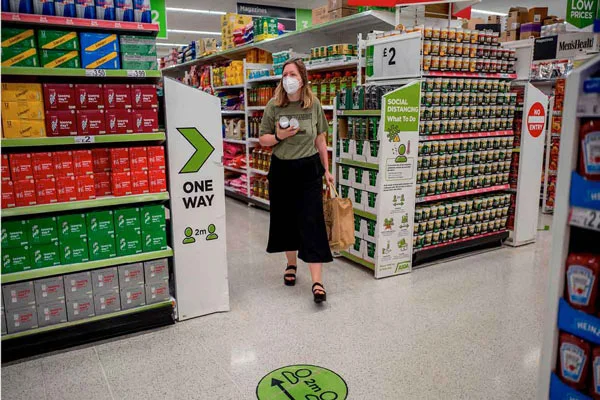Feeding Britain: Why we need to start growing our own
Feeding Britain: There are lessons to be learnt from COVID-19, though, says Russell Nathan, senior partner at accountancy firm HW Fisher. “Lockdown showed people’s habits are to hoard and, in preparation for a second wave and Brexit, many food suppliers and supermarkets are building up stocks of longer-life foods,” says Nathan. “For shorter-life foods, such as fruit and vegetables, the pandemic raised awareness of the need to grow more locally.”
Over the next few years, therefore, there will not only be a boom in the food-tech industry, according to Nathan, but growth in commercial use of greenhouses around the UK, as we embrace seasonality in pursuit of food sovereignty.
“As a society, we have become gluttonous with our desire to eat fruit and vegetables out of season. In the UK, we have to re-educate ourselves that we cannot eat everything we want 365 days a year. The smarter companies understand this,” he says.
Looking to history for future food tech lessons
Feeding Britain: Food tech is also responding to the rising global popularity of increasingly plant-based diets, from flexitarians to vegans.
However, for UK producer of plant-based meat alternatives THIS, lockdown posed some practical challenges. Rather than work from their labs, for instance, the company’s food scientists had to adapt and lab test products from their garden sheds.
More strategic issues arose too, says co-founder Andy Shovel. “Our business is trying to build a particularly strong presence in retail, having previously had an equal split between retail and foodservice. We’re also planning a direct-to-consumer (DTC) offering,” he says.
Of course, this is not the first time we have had disruption on a grand scale. Food historian and TV presenter Polly Russell, explains: “When the world turned on its head in March, it was our relationship with food that first showed the signs of strain. When faced with serious challenges or a national crisis, though, food manufacturers, retailers and customers have long had to adapt and adopt new food systems, habits and products.”
Canned food, for instance, which has seen a resurgence during lockdown, was first invented to help feed hungry French troops during the Napoleonic Wars. Early cans were very heavy and had to be prised open with a hammer and chisel, but later innovation saw market-leader Heinz working with British chemical company ICI to invent a self-heating can for the armed forces, even used by troops on D-Day.
How doorstep delivery can boost customer loyalty
Feeding Britain: Fast forward to 2020 and events have led Heinz to innovate again, but this time more in terms of strategy than cans. “Following the lockdown announcement of March 20, many were self-isolating and shielding, which meant getting groceries became a challenge. So, with a turnaround-time of less than three weeks, we launched our first ever ecommerce website,” says Jean Philippe Nier, head of ecommerce, UK and Ireland, at Kraft Heinz.
The spike in consumer demand behind the drive into DTC broke records. The brand boosted production of Heinz Beanz to 50 million cans in one month, nearly double the normal amount sold.
While production went big, however, the team behind the new Heinz to Home model stayed small for speed. Nier adds: “We worked as an entrepreneurial startup with a very small cross-functional team of four to shorten decision-making.
“We had to be reactive, agile and take more risks than normal. We’re glad we took the gamble. We’ve never had this kind of direct engagement before and it has been a real game-changer.”
By no means all COVID-induced changes have been positive, of course. For instance, six out of ten UK businesses decreased their investment in sustainability initiatives due to the pandemic, according to research from e-procurement specialist Ivalua.
Hope is not lost, though, concludes Ivalua’s smart procurement expert Alex Saric: “While it is a barrier today, COVID-19 offers a chance for businesses to reset their priorities, setting aside a focus on cost and putting sustainability at the forefront. In this respect, COVID could be a tipping point for a sustainability revolution.”

